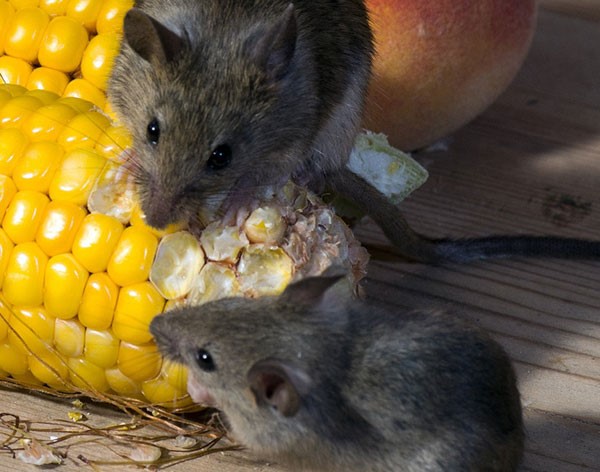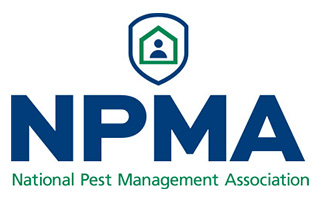MICE CONTROL

Mouse infestations are a common pest problem and it is only increasing within residential homes in New Jersey and Pennsylvania. Mice can be harder to detect due to their size, thus they can do a lot of damage before they are ever noticed.
Once mice enter your home, they can be extremely difficult to get rid of since they often live in hidden areas within garages, attics, lofts, and wall interiors which is why store-bought solutions often fall short. As a result, having a mice control program in place will help you mitigate several important risks your property may be under.
Not sure if you have a mice problem? Or maybe you want to learn more about how mouse control works. Check out the following mice information to clarify some questions you may have.
Where do mice hide?
Our modern society has created an ideal environment for rodents in which they can thrive and multiply quickly. They are growing increasingly resistant to common prevention methods and regulations for the use of rodenticides are becoming more stringent.
Mice make their nests in houses where human activity is the lowest since they seek out places where they are least likely to be disturbed to build their nest. A single mouse will create a nest to live and raise multiple pups. Once pups are old enough to live on their own, they leave the nest and create their own individual nest where they also multiply, this cycle repeats many times during the year. This is the reason why nests can be found pretty much anywhere within a home or property. Secure and protected areas with little activity that provide close access to food and water are ideal locations for mouse nesting. The most common hiding places for mice nests are:
- Insulation
- Attics
- Wall Voids
- Under Refrigerators
- Under Stoves
- Under Dishwashers
How to identify mice, rats, or squirrels?
Sometimes, identifying mice in your home or business can be tricky as they are nocturnal creatures and usually only active at night. The following are signs that can help you identify them:
- Scratching, Mice are nocturnal creatures. Hearing scratching in your home at night, maybe a sign of mice activity. They may be trying to chew wood or walls on your property.
- Droppings, mice are constantly eating, which makes them leave droppings behind and will appear to be black or brown in color and the shape of a grain of rice. Droppings can be found in the areas of the house that mice frequent the most, such as attics, garages, basements, warehouses, and crawl spaces.
- Tampered food, mice are in search of food sources. Tampered food such as cereal boxes or other pantry items that look like they were chewed through along the edges are signs of mice feeding in your property.
Similar to mice, squirrels can make their way into your attic and create their nest. The main difference between squirrel and mouse infestations is the time of the day that they are active. As mentioned before mice are nocturnal creatures, whereas squirrels are diurnal.
Squirrels make strange scratching, jumping, or scampering noises in your home and may damage entry points including around the fascia boards, shingles, eaves troughs, and outer panels with all kinds of damage along the roofline. Squirrel droppings are commonly found in attics as well as strange odors and “water damage” marks on your walls and ceilings from the squirrel urine and feces.
What’s the difference between mice and rats?
The main difference between mice and rats is their size. A typical House Mouse is anywhere from two to four inches in length, as opposed to the common, and much larger, Norway Rat which measures seven to nine inches in length. This difference makes it easy to distinguish between the two if both are at adult size, but a juvenile Rat that has not reached full size can look similar to an adult House Mouse.
Mice are skillful climbers and have no problem inhabiting the attic in your home when nesting. Due to their small size and flexibility, mice can also fit into the smallest of holes, which allows them to access parts of your home you didn’t think anything could fit in. Even though rats can climb as well, they do prefer to inhabit lower levels of a structure, such as a basement or a crawlspace.
Both rats and mice can cause damage to your property by gnawing on various structures and wires. Mice have weaker teeth than rats, which means that any food source that is properly stored in glass or metal can prevent the mice from contaminating it, but that may not be the case with rats. Rats are much stronger than mice and have been known to gnaw through various building materials.
How did I get mice?
Mice can find their way into your home or business through many different avenues in their search for shelter and food sources taking advantage of their small size and ability to squeeze through holes much smaller than their body size since an opening as small as a quarter of an inch can provide a hiding place or entry spot for them, accessing your property without you even noticing.
These entry points may be; but are not limited to cracks or holes in your walls, pipes, or foundation; broken or torn vents, weep holes, and builder’s gaps. Should you accidentally leave doors or windows open, this is another method for them to enter your property. These problems need to be taken care of or mice could even get into your walls.
What may mice around your property cause?
Besides causing structural damage to your property, mice can also carry many harmful diseases that can be spread to other animals or humans, such as hantavirus, salmonellosis, and listeria. They can also spread diseases indirectly when other pests, like fleas or ticks, feast on an infected mouse. In order to avoid any negative health effects, you need to address the problem immediately when you notice an infestation on your property.

Tips for property owners
- Store any firewood you may have in the winter at least 20 feet or more from your property to discourage mice from nesting too close to your property
- Repair and replace broken or aging vents.
- Inspect the foundation and exterior of your property and close off gaps, use caulk, and steel wool to fill in small holes and gaps leading into your property.
- Keep your kitchen tidy. Pests will stay inside if they find food.
- Clean up your garage and use sealed containers and bins.
- Repair any appliances suffering from water damage.
- Cut back bushes and plants, mice will have less space to hide and gather.
- Do not rely on essential oils, sound machines, or ultrasonic repellents.
- Get a professional pest inspection to identify and seal entry points.
Want a Free Estimate?
Need to Schedule Service?
Have a Questions?
WHAT WILL WE DO?
Our mice control process typically consists of the following stages:
- Confirm or discard the existence of mice on the premises through an inspection
- Identify the factors that may be causing and contributing to the infestation
- Offer pest control programs to get the problem under control
- Treat the existing mice population and prevent future infestations.
What our clients are saying
Our Partners and Awards
Service area
New Jersey:
Ocean County
Essex County
Passaic County
Morris County
Hudson County
Bergen County









